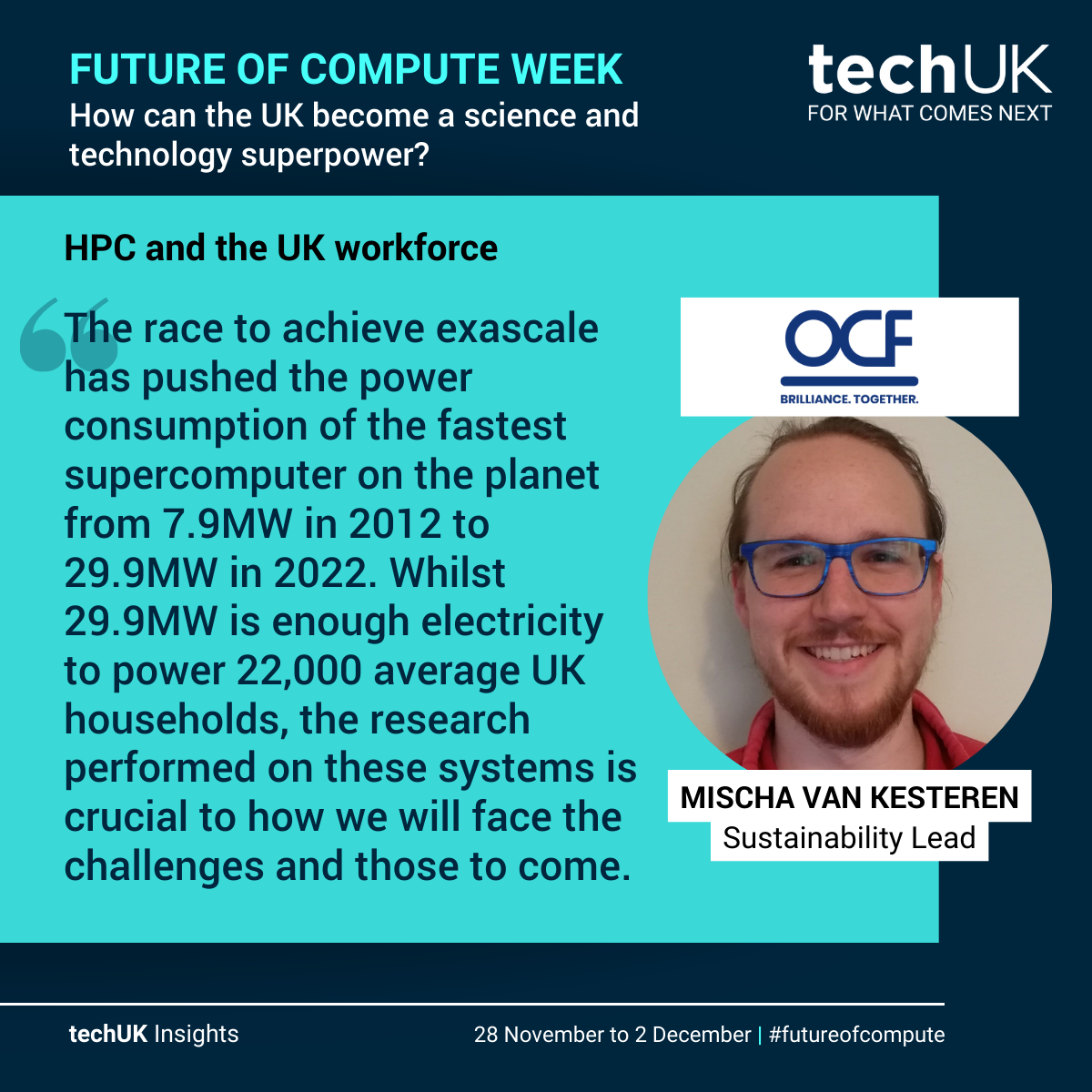As temperatures soar, what does this mean for our data centres powering HPC?

We cannot escape the heat. We were hitting record temperatures this summer and according to the UK Met Office, this is just a sign of things to come. Even hyperscale providers have struggled with the extreme weather events, suffering outages in the recent heatwave. So as temperatures and energy prices soar, how can we ensure that our data centre and HPC environments remain sustainably fit for purpose now and beyond.
The pursuit of Moore’s Law and greater hardware performance has led to manufacturers ramping up the power consumption of components. Data centres, particularly in the HPC space, where OCF operates are using racks that are denser in general and can be 5-10x more power hungry than 10 years ago.
Going one step further, the race to achieve exascale has pushed the power consumption of the fastest supercomputer on the planet from 7.9MW in 2012 to 29.9MW in 2022.
Whilst 29.9MW is enough electricity to power 22,000 average UK households, the research performed on these systems is crucial to how we will face the challenges and those to come. Whether that’s research into climate change, renewable energy or to combat disease. It is vital however, that we continuously find ways of running infrastructures as efficiently as possible to lessen the impact on the environment and avoid potential disastrous situations.
So as the world gets warmer, we need to look at technologies that remove heat from data centres much more efficiently to avoid outages. Water transfers heat over 20 times faster than air making it great for cooling hardware. Get the flow rate and water temperature right and you can remove the need for air conditioning all together. Alternatively, components can be fitted with water blocks which directly cool the components, reducing the need for air cooling.
With the latest warm water-cooled systems, the output is warm enough to be cooled by ambient temperatures to a point where it can be cycled back into the systems. This is significantly more efficient than trying to chill air in the data centre. The highest outdoor temperature recorded in the UK during the heatwave was 40.3 °C. Computer components are rated to run at up to double that so as long as the transfer medium is efficient enough you can cool the components for just the energy used by the pumps.
This is one of the reasons why you hear about data centres in Norway and Iceland being so competitive, they can make use of free cooling far more shrewdly due to their lower temperatures.
Taking things one step further, the heat can be used for practical purposes rather than exhausted into the air. There are a few innovative data centres which have partnerships with local communities to provide heating to homes from their exhaust heat, or even the local swimming pool. The energy these houses would have consumed to heat themselves has in theory been saved.
One helpful tool for effectively reducing power consumption is accurate information on power usage. Just like a smart meter in the home, having up to date figures on how much is being consumed and at what time makes efficient, targeted reductions possible. One-way OCF is doing this is by providing per-job power consumption figures on clusters where energy efficiency/reduction is a key requirement.
As temperatures increase, so must we adapt quickly to ensure sustainability in our data centre and HPC environments for now and the future. The conversation is already shifting from purely performance/£ conversations with our HPC customers to performance/watt which is great to see – please do get in touch if you would like to discuss how you can minimise the environmental impact of your critical HPC workloads.

Rory Daniels
Rory joined techUK in June 2023 after three years in the Civil Service on its Fast Stream leadership development programme.

Ella Shuter
Ella joined techUK in July 2025 as Junior Programme Manager for Emerging Technologies.

Laura Foster
Laura is techUK’s Associate Director for Technology and Innovation.

Elis Thomas
Elis joined techUK in December 2023 as a Programme Manager for Tech and Innovation, focusing on Semiconductors and Digital ID.


